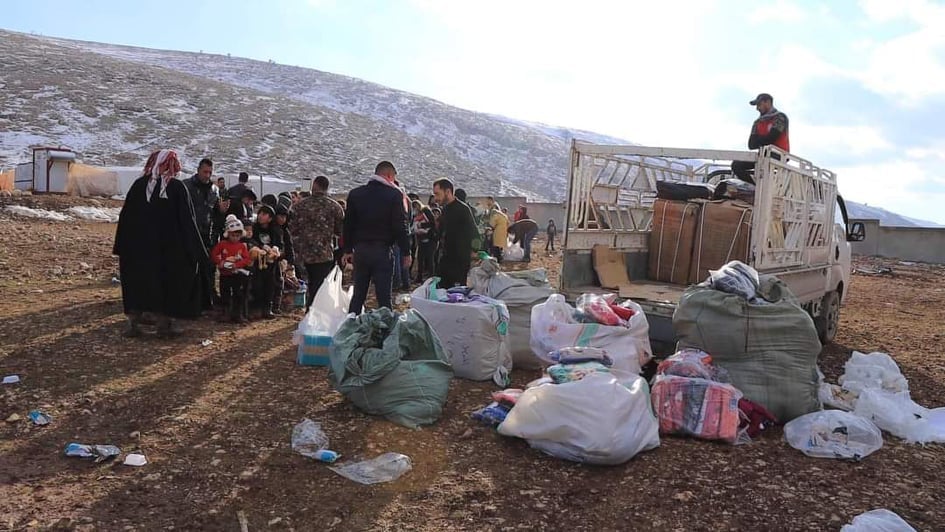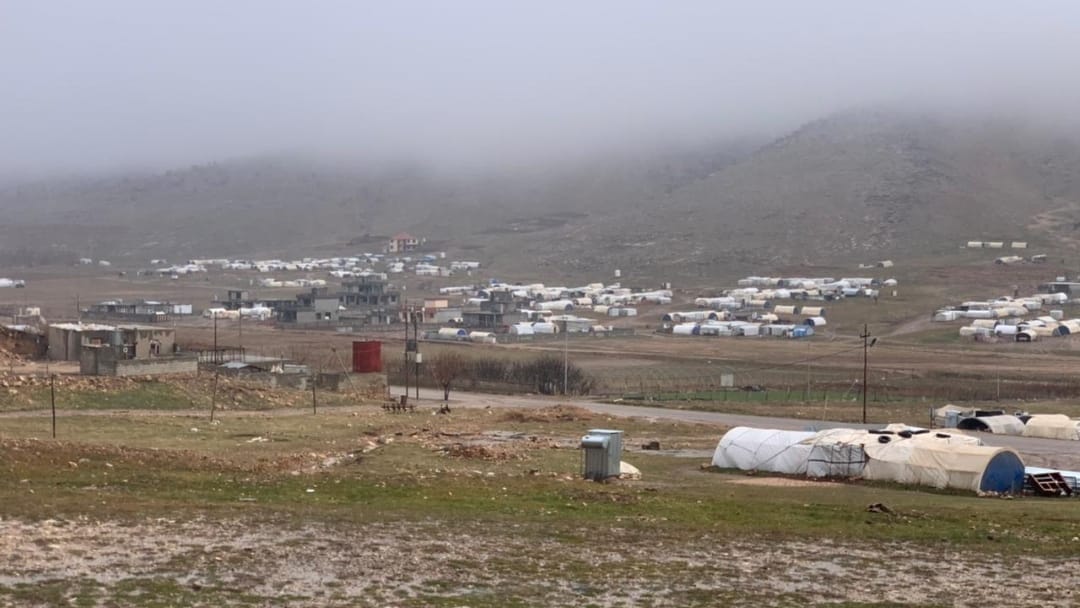Hundreds of displaced families in Mount Shingal (Sinjar), in Nineveh, are not covered by the financial grant that the Iraqi government allocated to Internally Displaced Persons IDPs willingly return home, amounting to four million Iraqi Dinars IQD (USD2,700), and while the local and international aid organizations stopped supporting them.
According to KirkukNow's follow-up, approximately 900 displaced families still live in Sardasht camp on Mount Shingal, although in 2020 the Iraqi government decided to close the camp and stopped all aid to its residents.
“We are displaced and unable to return to our areas due to the destruction of our homes, but the government is ignoring the issue of compensating us,” said Ziad Murad, who has been living in the camp since 2014 and has applied for the financial grant but has not received it yet.
The Iraqi Ministry of Immigration and Displacement increased the amount of the financial grant provided to returning families from 1.5 to four million IQD , in addition to other piriviliges as distributing some household appliances and supplies and other benefits such as employment and social welfare salaries.
The compensation covers the residents of the IDP camps located in the Iraqi Kurdistan Region IKR and does not include Mount Shingal camp.
"We did not come to Mount Shingal willingly to live in a camp. The four-million-dinar grant was supposed to include us and put an end to this difficult life," Murad added.
Thousands of Yazidis headed to Mount Shingal (120 km west of Mosul) following attacks by the militants of the "Islamic State in Iraq and Syria (ISIS)" in 2014, and about 2,000 Ezidi families settled in the Sardasht camp.
“We are not receiving any aid. The distribution of household and health supplies and food supplies has also stopped. Even the tents have become worn out because they have not been replaced for four years. All of this is under the pretext of closing the camps,” Fadia Khaled, a resident of Sardasht camp, told KirkukNow.

The Iraqi government has closed all camps in the areas under its authority and is scheduled to end its duties in the camps for the displaced in the IKR at the end of July 2024, based on the decision of the Iraqi Council of Ministers.
The spokesman for the Iraqi Ministry of Migration and Displacement, Ali Abbas, told KirkukNow, “At present, there is no camp left within the borders of Nineveh Governorate. There is no camp named Sardasht. The four-million-dinar grant is only provided to families returning from the camps of the Kurdistan Region.”
There are more than 600,000 displaced people in the Kurdistan Region, part of them live under tents in 26 camps, most of whom are from Nineveh, especially from the non-Muslim Ezidi (Yazidi) component of Shingal District, according to statistics from the Joint Crisis Coordination Center of the Kurdistan Regional Government KRG.
The official in the Ministry of Immigration explained that the Ministry seeks, by the allocated budget to cover all returning families. “Any family that ends its displacement file anywhere in Iraq, provided that it is officially registered, can obtain the financial grant amounting to one million five hundred thousand dinars.”
According to KirkukNow's previous follow-ups, many displaced people, especially those displaced from Shingal, which was subjected to major destruction during the ISIS war, are reluctant to return due to the lack of security, proper public services, and lack of job opportunities.
Six million Iraqis were displaced from their areas due to the ISIS war and the military operations of the Iraqi forces in the period from 2014 to 2017, and according to statistics from the International Organization for Migration IOM, more than a million citizens are still living in displacement, including the displaced people residing in the camps of the Kurdistan Region.
“The government was supposed to prepare a better plan to close the camps, not to close them whenever and however they wanted and stop aid. If the aid and compensation had included us, we would also have returned to our homes,” according to Khaled.






